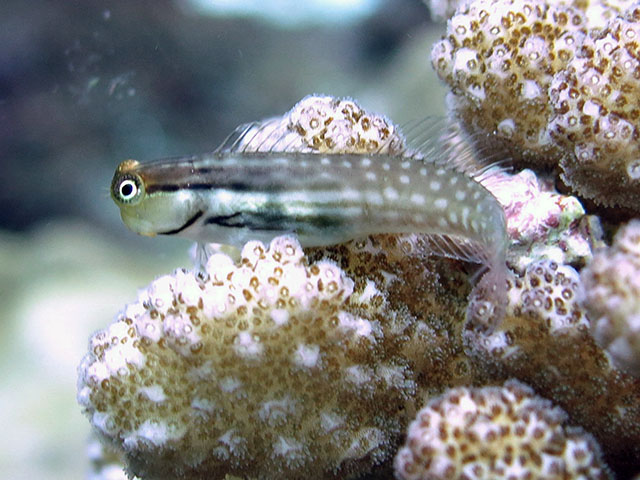| Blenniidae (Combtooth blennies), subfamily: Salariinae |
| 6 cm TL (male/unsexed) |
|
reef-associated; depth range 0 - 15 m |
| Indo-West Pacific: Sri Lanka to Vanuatu, north to Taiwan and the Yaeyama Islands, south to Shark Bay and the southern Great Barrier Reef; Belau in Micronesia. |
|
Dorsal spines (total): 11-13; Dorsal soft rays (total): 13-15; Anal spines: 2-2; Anal soft rays: 14-17. Y-shaped mark on pectoral fin base (Ref. 559). |
| Adults occur solitary or in small groups on boulder habitats (Ref. 90102) sitting on rock and living coral (Ref. 9710) in shallow coastal reefs. Common species on coastal and inner reef crests with rich coral growth (Ref. 48636). Oviparous. Eggs are demersal and adhesive (Ref. 205), and are attached to the substrate via a filamentous, adhesive pad or pedestal (Ref. 94114). Larvae are planktonic, often found in shallow, coastal waters (Ref. 94114). |
|
(Ref. 96402)
|
| harmless |
|
Museum: Luzon, USNM 225051. Siquijor, USNM 227538. Palawan, USNM 222138. Cuyo Is., USNM 219312, 227539 - 40 (Ref. 5296). Also Ref. 1602. |
Source and more info: www.fishbase.org. For personal, classroom, and other internal use only. Not for publication.
Page created by Jen, 05.08.02,
php script by kbanasihan 06/09/2010 ,
last modified by
dsantos, 20/08/10

